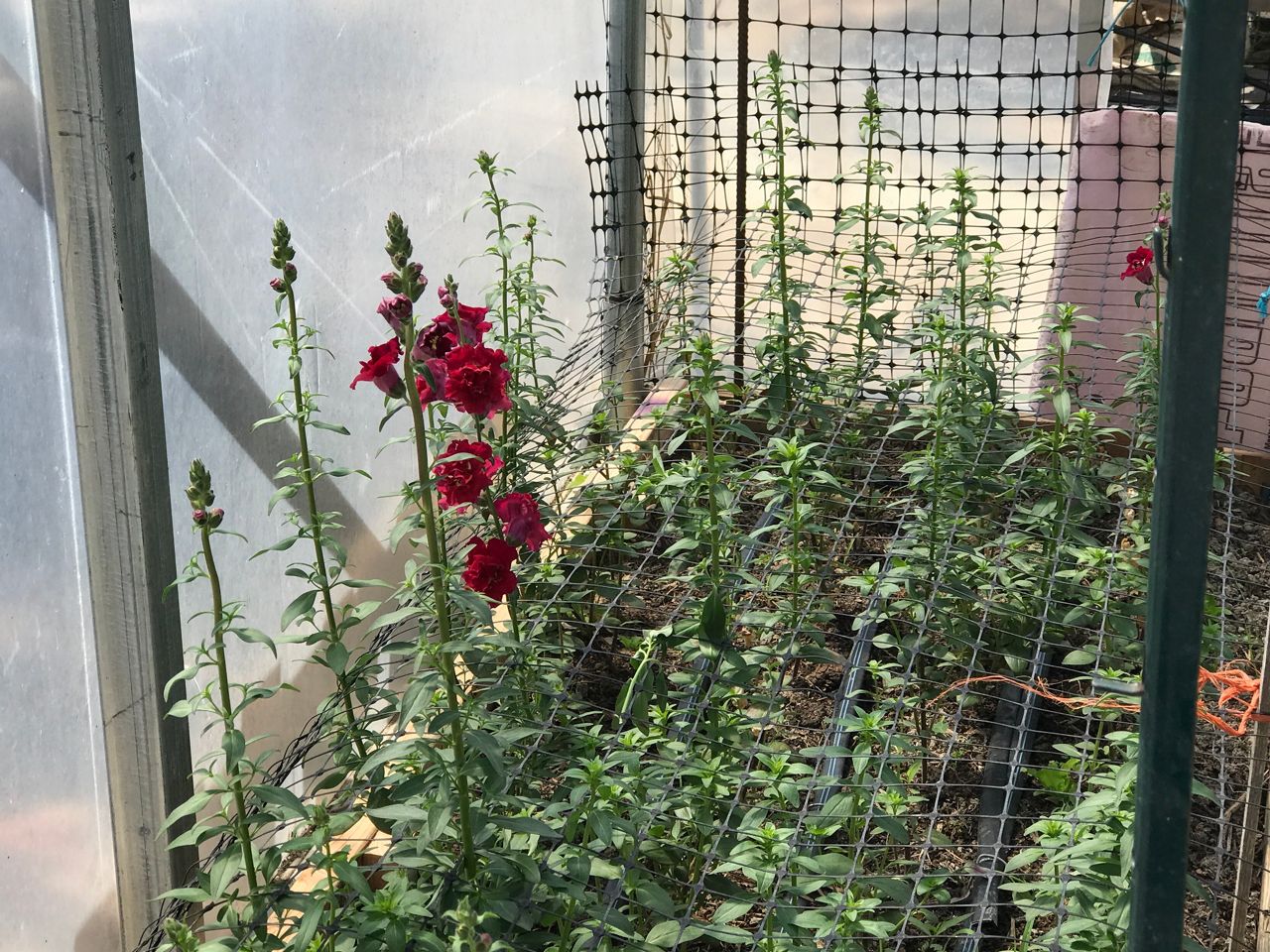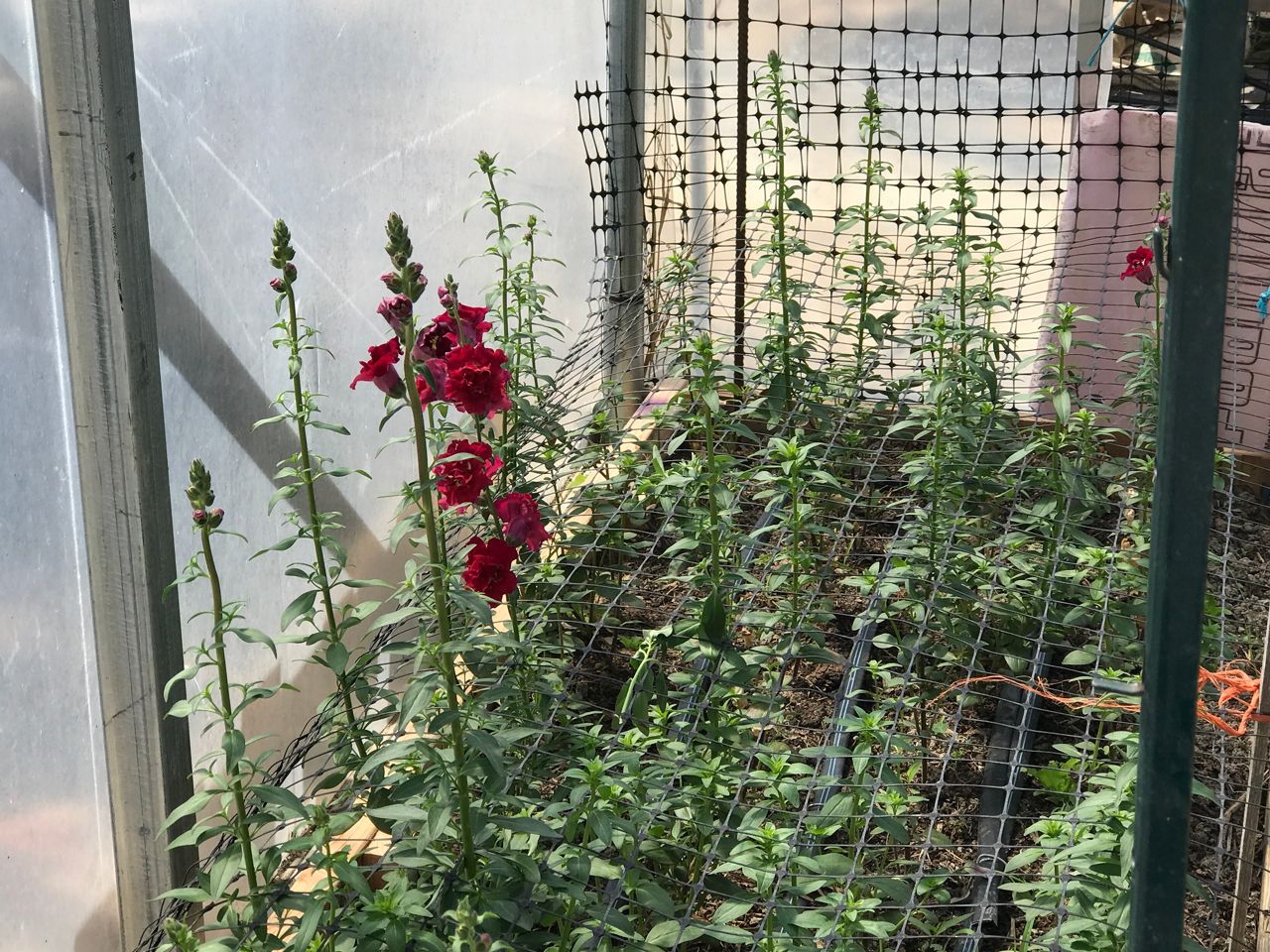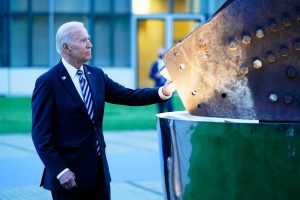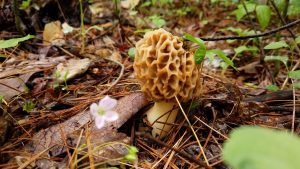NORTH ROYALTON, Ohio — Visar Duane considers herself “an accidental farmer.” She said she bought her land first, and began to farm it after she discovered a single raspberry patch.
Over the next decade, she grew the patch to become Purple Skies Farm, which she operates with help from her husband, David Duane, and family members. The Duanes are also starting a two-suite bed & breakfast at Purple Skies.
“I see a lot of opportunity. I never see this as work,” she said. “I look at this field as opportunity to be made.”
A former Cambodian refugee, Duane immigrated to the U.S. in 1981 through the U.S. Refugee Resettlement Program. She went to school to become an occupational therapist, and now schedules her clients around her farming schedule.
Both farming and therapy work involve problem-solving, she said, and they go hand-in-hand with her attention to healthy eating.
Duane’s interests and experience make Purple Skies a good mentor farm for the New Farmer Academy in the Cuyahoga Valley National Park.
The only program of its kind in the National Park Service, the farmer academy was launched by Countryside Food and Farms, a nonprofit the park service established in 1999 to rehabilitate and lease the park’s original farmsteads.
The New Farmer Academy relies on farms in the national park and outside its borders to offer academy interns a specialized, hands-on education, based on students’ specific interests. The interns work side-by-side with the farmers, and take classroom instruction on an array of farming topics at the academy farm in Bath, Ohio.
The two-story modern structure doesn’t look like a traditional farm. Purple Skies has huge picture windows opening to full views of the sky over the fields, where everything — fruit, vegetables and specialty flowers — is grown organically, although the farm is not certified organic.
Duane said Purple Skies Farm was named for the colors twilight sometimes paints across the open sky.
Out in the fields, Duane walks nimbly on narrow passageways between row after neat row of strawberries next to velvety black pansies next to onions, carrots, beets and radishes.
In another bed, exotic-looking fronds of garlic wave above rows of delicate lettuce. A thick, green patch of organic blueberries is fenced, and stands apart from the other plants.
Duane also grows many varieties of plants inside a greenhouse on the farm. In additional to black pansies, she grows black dahlias, and multi-colored zinnias. Old-timey snapdragons blooming in pastes are in neat rows of pots, sharing space with more pansies, and other blooming plants.
A main focus for Duane is to eliminate wastefulness — energy or materials.

Purple Skies Farm grows several varieties of blooming plants. (Spectrum News/Jennifer Conn)
“I think general farmers, they over-plant everything,” Duane said. “I don’t. I under plant because I don’t like to wasted. Wasted goes to the compost. I’d rather not to put my energy to planting to begin with. It wouldn’t be efficient that way.”
Maddie Baker, 23, is a second-year academy intern, working this year with Duane at Purple Skies. She spent her first year at PurpleBrown Farmstead in the national park.
It’s clear Baker is enthusiastic about the work, as she walks between rows, pointing out different plants.
“The main thing is she really wants to produce it well, like she wants to put the time and energy into producing something that actually tastes good,” she said. “Like the fact that you care so much about how it tastes and not just ‘I need to sell these.’ The product has so much viability in itself. Yeah, quality not quantity. That means everything.”
Customers notice the taste, as a portion of Purple Skies’ produce is already spoken for by a local restaurateur and a specialty caterer, Duanesaid.
But every Saturday, a farm market on-site makes Purple Skies’ products available to the public, and a lively summer, vegetable-share program fills up every year.
One customer comes every year as soon as it’s raspberry season, Duane said. He buys up as much of the fruit as she can spare, saying he’s never had berries that taste as good.
Duane said the secret is in the soil.
“That’s the biggest problem with conventional agriculture — there’s no nutrition in the soil. So therefore, there’s no nutrition in the food,” she said. “And that’s why the flavor is different. That’s why it grows differently.”
Baker agrees. She said it’s too bad young kids aren’t exposed to quality foods earlier.

Organically grown strawberries at Purple Skies Farm. (Spectrum News/Jennifer Conn)
“I didn’t know tomatoes could taste so good until I was in my 20s. And I mean, maybe that’s a reason why kids don’t like their vegetables, because they don’t taste that good,” she said. “It’s true, they don’t taste that good. But they can.”
Using cover crops and rotating what and where you plant are essential, Duane said, because you don’t really grow food — you grow the soil.
“You don’t need big land to grow a bunch of abundance,” she said. “You take care of the land and the soil itself. And you allow them to rest.”
Baker plans to return to Purple Skies in her third year studying at the farmer academy, in part because of Visar.
“She’s a very just bubbly person. She really helps you to enjoy what you’re doing and also do it in a way that you’re learning from everything that you’re doing,” she said. “I really love her ambition, and her will to get everything done or just problem solve.”
Like Duane, problem-solving is also part of what draws Baker to farming.
“It really comes in handy when you’re in the field, something breaks down,” Baker said. “You kind of have to calm down and step back and just look at it for what it is so that you can solve that problem.”
It’s a bonus Duane is also an occupational therapist, Baker said.
“She’s like body conscious,” she said. “I’m really learning to move my body in a way that’s efficient. And that’s the key part that we’re really focused on is efficiency and making sure that you don’t do things twice, just because that wastes time, that wastes money.”
Baker hasn’t decided exactly what she wants to do with her education, except somehow apply her knowledge to community farming, she said. She’s interested in practical applications such as container gardening.
“Maybe help to facilitate classes on growing your own or even growing in small spaces because not everyone that is growing has tons of land,” Baker said. “There’s certain modifications that you need to make based upon the land or if you’re just going straight off of your balcony. I would like to work more with community growing.”




